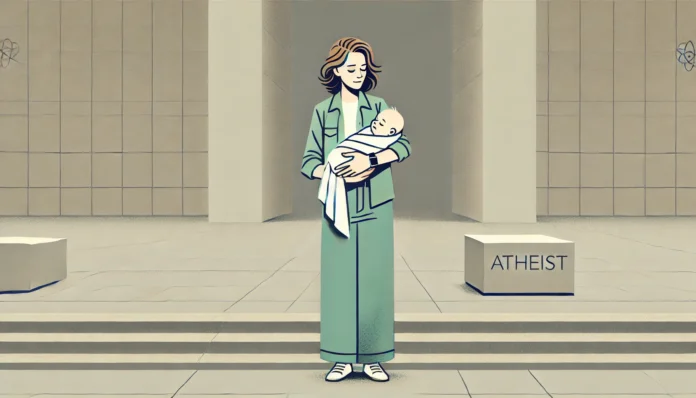New Research Highlights Maternal Influence in Religious Transmission
A recent study has shed light on the pivotal role mothers play in the transmission—or lack thereof—of religious beliefs within families, offering new insights into the ongoing decline of religiosity in the United Kingdom and the United States. The findings, published on June 25, 2025, and reported by the Daily Mail, suggest that changes in family religious socialization are central to the rise of non-religious identification in Western societies.
The research is to be published in a £40 book called Families and Religion: Dynamics of Transmission across Generations. The book is to be released this August.
The blurb reads: ‘Comparing diverse social settings, the authors uncover the subtle yet powerful forces influencing whether religious traditions persist or fade across generations.
‘A vital contribution to the study of religious change, this volume offers new insights for scholars of sociology and religious studies, and for those interested in understanding how faith may be passed down within families.’
Key Findings: Mothers at the Heart of Religious Socialization
The study, conducted by an international team of researchers, found that mothers are often the primary figures responsible for passing on religious beliefs to their children. Through interviews with families across several countries, the researchers discovered that the presence or absence of maternal religious engagement significantly influences whether children adopt, reject, or are given the freedom to choose their own religious identities.
Family Dynamics and the Transmission of Belief
The research identified several factors that foster the successful transmission of religious beliefs:
- Joint Religious Practices: Families who regularly participate in religious activities together are more likely to see their children continue those traditions.
- Family Religious Self-Image: A strong sense of religious identity within the family unit supports the intergenerational transfer of faith.
- Parental Agreement on Denomination: When both parents share the same religious denomination and values, children are more likely to adopt those beliefs.
However, the study also found that as parents—particularly mothers—become less religious, the likelihood of children being raised without a specific faith increases. In many cases, children are now encouraged to explore different belief systems or to make their own choices regarding religion.
Societal Trends: The Rise of Non-Religious Identification
Census data from both the UK and the US reveal a significant rise in the number of people identifying as non-religious. This trend is especially pronounced among younger generations, who are less likely to be raised in religious households compared to previous decades. The study’s authors link this shift directly to changes in family religious socialization, with mothers’ declining religiosity playing a central role.
According to the researchers, the traditional model—where mothers were expected to instill religious values and practices in their children—is being replaced by a more individualized approach. As a result, non-religion is not only more frequently passed on but is also increasingly seen as a valid and accepted choice within families.
International Perspective: A Widespread Phenomenon
The study’s interviews spanned multiple countries, indicating that the decline in religiosity and the central role of mothers in this process are not limited to the UK or US. While cultural and denominational differences exist, the overarching pattern remains consistent: as maternal religious engagement wanes, so too does the likelihood of children maintaining religious beliefs.
Implications for the Future
The findings suggest that the ongoing decline in religiosity is likely to continue as family dynamics evolve and societal attitudes toward religion shift. With mothers playing a less active role in religious socialization, future generations may see even higher rates of non-religious identification. The study highlights the importance of understanding family influences in shaping broader social trends and offers a new perspective on the so-called ‘atheist age’ emerging in Britain and beyond.
For more details, read the original article on the Daily Mail.

